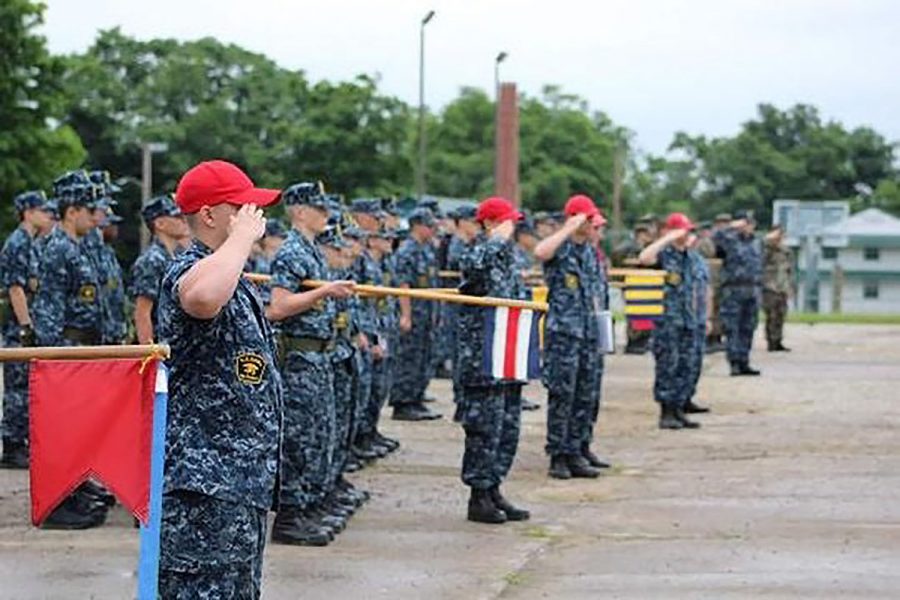Summer Adventures: Carter Avery Attends Navy Training Camp
November 13, 2018
While many students spent their summer mornings sleeping in, Carter Avery (‘19), at the break of dawn, ran miles, and participated in other intensive workouts as a part of his Navy training at Fort Indiantown Gap, Pennsylvania. He spent 2 weeks at the camp, where he learned many leadership qualities. Entry to this program was through a specific application process.
“We had to get a recommendation from my commanding officer, had to write an essay, and had to pass a fitness test,” Avery said.
He found out about this program through his father several years ago.
“I found out about it in 8th grade from my dad and he brought me a pamphlet for it,” Avery said. “And I’ve always wanted to be in the military.”
His first day in Pennsylvania was very chaotic.
“There was a lot of setting stuff up, and there was a leadership training we had to go to to kinda get us ready to indoctrinate new cadets,” Avery said.
His daily schedule also included PT [physical training], which involved running long distances and many other exercises.
“For morning PT we usually did a 1-2 mile run, push ups, sit ups, flutter kicks, arm circles, burpees, sprints, and a bunch of other stuff,” Avery said.
His daily schedule was full of rigorous and educational activities that taught him how to become a better leader.
“We woke up really early in the morning. We did physical fitness, we did PT and then throughout the day we did some classroom sessions with one technical training mixed in there,” Avery said.“I did a lot of teaching, a lot of physical activity, and a lot of technical training like firefighting , firearms instruction, and practicing my citizenship.”
There was a lot involved when it came to the leadership, firearms, and firefighting.
“In the leadership training we learned how to properly teach and treat the recruits. We talked about stuff like hazing and sexual harassment,” Avery said. “In the firearms module, we familiarized the recruits with all of the parts of the Beretta M9 [a type of gun] and how to operate it; in the firefighting module we taught the recruits about the different types of fires and how to extinguish them in different scenarios.”
Avery participated in several fascinating things, such as going to a fire station off of the base.
“We got to do some hands on training which included hose operation, how to use jaws of life, and some basic life saving techniques,” Avery said. “The most grueling part of the training was battle stations. Battle stations was our final test for the recruits. They had to wake up at 1 in the morning and complete a series of modules, proving what they learned throughout the training. Some of the modules included damage control, movement under fire, a mass casualty medical scenario, and knot tying.”
Avery says if he goes again, he would want to change his position.
“Instead of being an RDC [recruit division commander] this summer, I want to be the chief of the entire training candidate,” Avery said.
Overall, Carter learned more about himself through his training program.
“I feel like the most important thing I learned at the training was how to be a good leader,” Avery said. “It showed me that being a leader isn’t just running around telling people what to do. Being a leader means mentoring and developing your people.”


